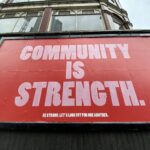February and Black History Month have arrived. Given the polarized condition of race relations in America, paying attention to the gifts and opportunities that this annual celebration feels more important than ever to me. The next four posts will focus on some aspects of learning and understanding Black History, and an exploration of what we individually and collectively might learn and do to advance “liberty and justice for all.”
In two years, we celebrate the 100th anniversary of what started as Negro History Week, launched by Carter Woodson in 1926. Historian Woodson chose February in order to honor the birthdays of Abraham Lincoln and Frederick Douglas. In 1976, nearly fifty years ago, Gerald Ford declared February Black History Month in the United States encouraging all the people of our nation to “seize the opportunity to honor the too-often neglected accomplishments of Black Americans in every area of endeavor throughout our history.”
As we approach these 100th and 50th-year milestones, what has our attention to Black History taught us and what do we need to learn and do moving forward?
In preparation for Black History Month, I began having conversations with people engaged in work for racial justice, looking for ideas and guest contributors. One colleague does nonprofit consulting in Florida. She reflected on what it is like to be anti-racist and work for racial justice in a state where the Governor is leading an attack on learning Black history.
This attack on expanding equal rights and addressing structural racism is certainly not unique to Florida. Or to so-called “red states”. Every community has its history with vestiges of racism. Race, often combined with class, ethnicity, gender or sexual identity, influence how we live together, and who has access to what in our “land of opportunity”.
Two years ago, as Black History Month 2022 ended, I wrote a post about why as a white man it is important for me to pay attention to Black History. I wrote about how easy it is for me as a white man to see Black History as not my history and therefore not a priority. I have come to see how untrue that is. Real change won’t occur in America until white people like me learn and celebrate the rich contributions of Black and other Indigenous and People of Color to America’s strengths and the many ways directly and unconsciously white people have fostered and strengthened discriminatory and racist policies and practices.
Given the growing pushback and battle over racial equity and whose voices and lives count in America today, paying attention to Black history seems more important than ever this year. It should be important for all Americans. President Gerald Ford reminded us we have neglected the accomplishments of Black Americans in every area of endeavor. How right he was.
The cycles of apparent progress and dramatic setbacks in racial justice in America seem hard to understand, particularly for white people. But are these movements so hard to understand and even predict? Not if we pay attention to the history of Black people in the United States.
I invite readers of Critical Conversations to consider doing our own review of racial justice in America this month. Where do you see progress and signs of hope? What troubles you and gives you concern? What do you feel led to learn and do to be an anti-racist in America? What would it take to make this 100th anniversary a time of progress and hope in America’s aspiration for “liberty and justice for all”?




Tom, as we worked together in the 70’s, I learned much from you as you were sensitive to the Black community of Govans while navigating with the white community of Patterson Park. There were not many white people that I trusted as I had to be the negotiator to ensure respect and equity in the formation of the NHS of Baltimore. You learned to respect me and I you. Thanks for your guidance.
Thanks Ron, indeed that was quite a learning expereince for me. It took me a while to understand why Edith Hare relied so much on Joe James. More lessons about race and trust working on Alameda Place in the 80’s. It took me a long time to understand why the people in Govans didn’t trust the Patterson Park people or the bankers. Years later I learned about racial covenants in Baltimore and realized how naive I was during the period we worked together. It’s great to reconnect. Let me know if you’d like to do a guest post for the blog some time? Peace, Tom